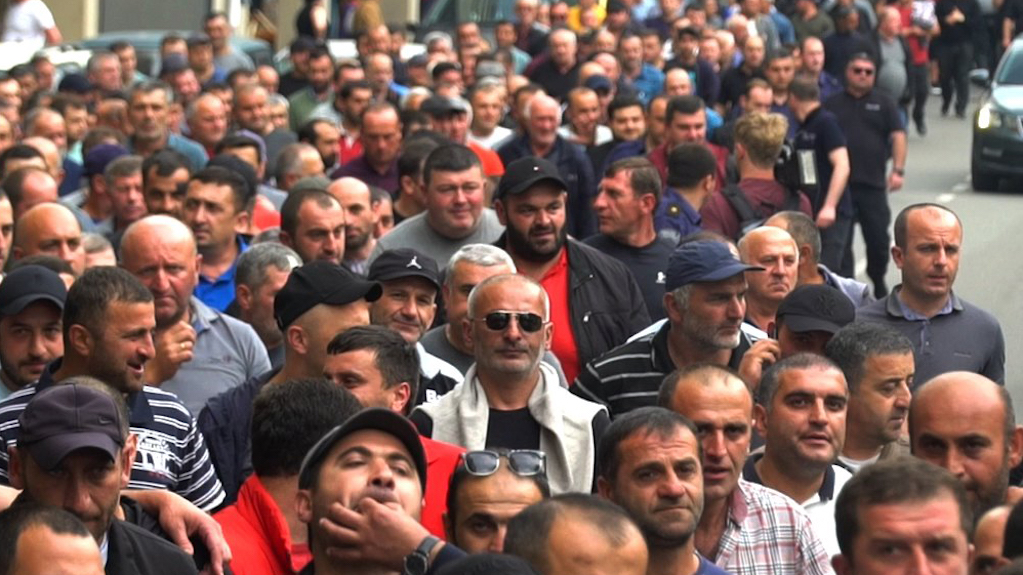Hundreds of Georgian Manganese employees in Chiatura have been on strike for the fourth day. The new working conditions proposed by the company are unacceptable to the miners.
News
Works in the Chiatura manganese mines have been suspended since February 1. According to workers, since the first of May, when the company started calling them in and gradually restoring the work process, it put forward new conditions, including a 30% increase in workload without a corresponding increase in salary.
“They were the ones who brought the new offer, we didn’t have any proposals. They sent us home with a 60% salary, which was just enough for our families to scrape by, now we come back after three months, and we are met with these renewed terms, which imply a salary reduction of at least 20%. They are not telling us directly that they are cutting our salary, but give us a work plan that is impossible to keep up with. We cannot do the impossible, even though we are miners and work underground, and no one will pay us for the work that is not done. Chiatura cannot bear this, our families will starve,” said one of the strikers.
Miners are saying that fulfilling the updated work plan may endanger their health and their lives.
The main demands of the strikers are returning to the old work plan, increased salaries, and a safe work environment.
What Georgian Manganese says
Georgian Manganese explains the necessity for the renewed terms of employment with a drop in demand for ferroalloys on the global market and a crisis caused by reduced prices.
According to the company statement, for years, 2662 employees have been working standard 8-hour shifts, except for 720 so-called watchmen. The new work schedule will have them transition from two-shift 12-hour working hours to three-shift 8-hour stretches. Employees' monthly salary, rest period, and working hours remain unchanged.
The company claims they are offering these changes to make sure 3382 workers in Chiatura don’t lose their jobs.
Giorgi Tatishvili, the Financial director of the company, stated in an interview with bm.ge that Georgian Manganese is expecting a loss of 28-30 million USD in annual income and is looking to halve this loss.
“Georgian Manganese had no export from February to May. Low-volume sales were made from warehouse leftovers we had built up during the previous cycle. During this period, despite the fact that production was halted, employees were receiving 60% salary, retained health-insurance benefits, the deduction of salary advances was suspended, and we negotiated quite fruitfully with banks to postpone their loan payments. These proposed work-schedule changes that will affect 720 employees serve our efforts to mitigate that 28-30 deficit and half the losses. Part of this effort is a transition to three-shift schedules,” stated Tatishvili.
He also said that Georgian Manganese’s new management deems these changes to be in line with company principles.
“In order to reduce expenses, you have to change something. Our view is that this is the only option for it to make sense for us to operate in Chiatura. The salaries of the workers are unchanged. The extraction will just become more efficient. What brings no economic value to the company will not be compensated,” says Tatishvili.
Georgian Manganese, which is the largest miner in Georgia, and has a yearly turnover of hundreds of millions and an annual profit of 96 million, has been managed by a special manager appointed by the state in 2017. In May 2023, by court order, Besik Kirtadze was appointed as the new special manager of the company. No information is available regarding his experience or credentials. Besik Kirtadze’s candidacy was proposed to the court by the previous special manager, Nikoloz Chikovani, which was supported by the ministries of economy and environmental protection.















